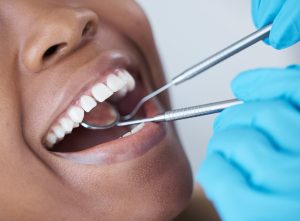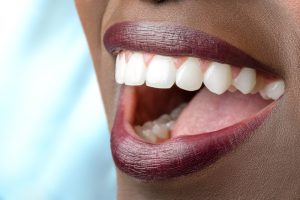Farber Center for Periodontics & Dental Implants
Why You Should Get Teeth Cleanings Every Three Months
The Importance of Professional Teeth Cleaning Every Three Months
Maintaining good oral hygiene is vital for health and well-being. While daily brushing and flossing are essential components of oral care, they may not be sufficient to prevent the buildup of plaque and tartar. Professional teeth cleaning, performed by a dental hygienist, plays a crucial role in keeping your teeth and gums healthy. The Long Island Periodontists of Farber Center For Periodontics & Dental Implants delve into the reasons why patients should consider having their teeth professionally cleaned every three months as opposed to the standard twice a year.
Prevention of Gum Disease
Gum disease, also known as periodontal disease, is a common condition affecting millions of people worldwide. It occurs when plaque and tartar accumulate along the gumline, leading to inflammation and infection of the gums. Regular professional cleanings help remove plaque and tartar buildup, reducing the risk of gum disease and its associated complications, such as gum recession, tooth loss, and systemic health problems.
Removal of Plaque and Tartar
Despite our best efforts, it’s challenging to remove all plaque and tartar from our teeth through brushing and flossing alone. Over time, plaque can harden into tartar, which cannot be removed with a toothbrush or dental floss. Professional cleanings use specialized tools and techniques to remove plaque and tartar from hard-to-reach areas, ensuring a thorough cleaning to promote optimal oral health.
Prevention of Cavities
Plaque buildup not only contributes to gum disease but also increases the risk of tooth decay. When plaque bacteria feed on sugars from food and drinks, they produce acids that erode tooth enamel, leading to cavities. Professional cleanings help eliminate plaque before it can cause dental damage, reducing the likelihood of developing cavities and the need for restorative dental procedures.
Fresher Breath
One of the most noticeable benefits of professional teeth cleaning is fresher breath. Plaque and tartar harbor odor-causing bacteria that can lead to bad breath. By removing these bacterial deposits, professional cleanings leave your mouth feeling clean and refreshed, with improved breath confidence.
Early Detection of Oral Health Issues
Regular dental visits for professional cleanings also provide an opportunity for early detection of oral health issues, such as cavities, gum disease, and oral cancer. Dental hygienists and dentists are trained to recognize signs of potential problems and can recommend appropriate treatment or intervention before they escalate into more significant issues.
Invest in Your Smile’s Future: Book Your Next Cleaning Now
Professional teeth cleaning every three months is a crucial component of a comprehensive oral hygiene routine. By removing plaque and tartar, preventing gum disease and cavities, and promoting oral health, regular cleanings can help you maintain a healthy smile for years to come. Don’t underestimate the importance of professional dental care—schedule your next cleaning appointment today by dialing our Hauppauge Office at 631-265-4442 or our Medford Office at 631-758-3700 and invest in the health of your smile!
The Link Between Oral Health and Overall Well-being
1. Physical Health:
Systemic Health: Oral health is linked to systemic health, and poor oral hygiene has been associated with various systemic conditions such as cardiovascular disease, diabetes, and respiratory infections. Bacteria in the mouth can enter the bloodstream and contribute to inflammation in other parts of the body.
Nutrition: The ability to chew and eat properly is crucial for good nutrition. Poor oral health, including missing or painful teeth, can affect an individual’s ability to eat a balanced and nutritious diet, impacting overall physical health.
2. Psychological Well-being:
Self-esteem: Oral health can influence self-esteem and confidence. Issues such as missing or discolored teeth may affect how individuals perceive themselves, potentially impacting mental health and well-being.
Pain and Discomfort: Oral health problems, such as toothaches or gum disease, can cause pain and discomfort, leading to stress and a decline in overall psychological well-being.
3. Social Well-being:
Social Interaction: Poor oral health can affect social interactions. Individuals with oral health problems may feel self-conscious about their appearance, leading to social withdrawal or isolation.
Communication: Oral health also plays a role in communication. Issues like bad breath or difficulty speaking due to oral health problems can impact social relationships.
4. Spiritual Well-being:
Connection: Some individuals may perceive a connection between oral health and spiritual well-being. For example, in certain cultural or spiritual practices, the body is considered a holistic entity, and oral health may be seen as reflective of one’s overall well-being.
Mind-Body Connection: Practices that emphasize the mind-body connection, such as meditation or mindfulness, may view oral health as part of the broader interconnectedness of physical and spiritual aspects.
It’s important to approach these connections with a holistic perspective, recognizing that physical, mental, and spiritual well-being are intertwined. Regular dental care, good oral hygiene practices, and a healthy lifestyle contribute to maintaining optimal oral health, which can positively impact overall well-being. However, it’s crucial to consult with healthcare professionals for personalized advice and treatment.
Why Oral Hygiene Is Crucial to Your Overall Health – By Hannah Seo
April 6, 2023
The inside of your mouth is the perfect place for bacteria to thrive: It’s dark, it’s warm, it’s wet and the foods and drinks you consume provide nutrients for them to eat.
But when the harmful bacteria build up around your teeth and gums, you’re at risk of developing periodontal (or gum) disease, experts say, which is an infection and inflammation in the gums and bone that surround your teeth.
And such conditions in your mouth may influence the rest of your body, said Kimberly Bray, a professor of dental hygiene at the University of Missouri-Kansas City.
A growing yet limited body of research, for instance, has found that periodontal disease is associated with a range of health conditions including diabetes, heart disease, respiratory infections and dementia.
Exactly how oral bacteria affect your overall health is still poorly understood, Dr. Bray said, since the existing research is limited and no studies have established cause-and-effect.
But some conditions are more associated with oral health than others, experts say. Here is what we know.
The health issues linked with oral health
About 47 percent of people aged 30 years and older in the United States have some form of periodontal disease, according to the Centers for Disease Control and Prevention.
In its early stages, called gingivitis, the gums may become swollen, red or tender and may bleed easily. If left untreated, gingivitis may escalate to periodontitis, a more serious form of the disease where gums can recede, bone can be lost, and teeth may become loose or even fall out.
With periodontitis, bacteria and their toxic byproducts can move from the surface of the gums and teeth and into the bloodstream, where they can spread to different organs, said Ananda P. Dasanayake, a professor of epidemiology at the New York University College of Dentistry.
This can happen during a dental cleaning or flossing, or if you have a cut or wound inside your mouth, he said.
If you have inflammation in the mouth that is untreated, some of the proteins responsible for that inflammation can spread throughout the body, Dr. Bray said, and potentially damage other organs.
Diabetes
Of all the associations between oral health and disease, the one with the most evidence is between periodontal disease and diabetes, Dr. Bray said. And the two conditions seem to have a two-way relationship, she added: Periodontal disease seems to increase the risk for diabetes, and vice versa.
Researchers have yet to understand exactly how this might work, but in one review published in 2017, researchers wrote that the systemic inflammation caused by periodontal disease may worsen the body’s ability to signal for and respond to insulin.
In another study, published in April, scientists found that diabetics who were treated for periodontal disease saw their overall health care costs decrease by 12 to 14 percent.
“You treat periodontal disease, you improve the diabetes,” Dr. Dasanayake said.
Pneumonia
If large amounts of bacteria from the mouth are inhaled and settle in the lungs, that can result in bacterial aspiration pneumonia, said Dr. Frank Scannapieco, a professor of oral biology at the University at Buffalo School of Dental Medicine.
This phenomenon has been observed mainly in patients who are hospitalized or older adults in nursing homes, and is a concern for those who can’t floss or brush their teeth on their own, said Dr. Martinna Bertolini, an assistant professor of dental medicine at the University of Pittsburgh School of Dental Medicine.
Preventive dental care such as with professional teeth cleanings, or periodontal treatments like antibiotic therapy, can lower the risk of developing this kind of pneumonia, Dr. Scannapieco said.
Cardiovascular disease
In a report published in 2020, an international team of experts concluded that there is a significant link between periodontitis and heart attack, stroke, plaque buildup in the arteries, and other cardiovascular conditions.
While researchers haven’t determined how poor oral health might lead to worse heart health, some evidence suggests that periodontal bacteria from the mouth may travel to the arteries in vascular disease patients, potentially playing a role in the development of the disease.
And a 2012 statement from the American Heart Association noted that inflammation in the gums has been associated with higher levels of inflammatory proteins in the blood that have been linked with poor heart health.
Some research also suggests that better oral hygiene practices are linked with lower rates of heart disease.
For example, in a study published in 2019, researchers reviewed the health records of nearly 250,000 healthy adults living in South Korea and found that over about 10 years, those who regularly brushed their teeth and received regular dental cleanings were less likely to have cardiovascular events than those who had poorer dental hygiene, formed more cavities, experienced tooth loss or developed periodontitis.
Pregnancy complications
A number of studies and reviews have found associations between severe periodontal disease and preterm, low birth weight babies, Dr. Dasanayake said. Though more research is needed to confirm the link.
In a 2019 review, researchers found that treating periodontal disease during pregnancy improved birth weight and reduced the risk of preterm birth and the death of the fetus or newborn.
And in a 2009 study, researchers found that oral bacteria could travel to the placenta — potentially playing a role in chorioamnionitis, a serious infection of the placenta and amniotic fluid that could lead to an early delivery, or even cause life-threatening complications if left untreated.
Research also suggests that bacteria from your mouth may activate immune cells that circulate in the blood, causing inflammation in the womb that could distress the placenta and fetal tissues.
There is longstanding research that periodontitis may induce preterm birth in animals like mice, and that treating these infections can protect against low birth weights and preterm birth.
Dementia
Researchers have been increasingly interested in the role of oral health in dementia, particularly Alzheimer’s disease, Dr. Scannapieco said.
“Bacteria that are found in the mouth actually have been identified in the brain tissue of patients with Alzheimer’s,” he said, implying a potential role for them in the disease.
In a recent review, scientists noted that oral bacteria — especially those related to periodontitis — could either affect the brain directly via “infection of the central nervous system,” or indirectly by inducing “chronic systemic inflammation” that reaches the brain.
However, there’s no evidence that oral bacteria alone could cause Alzheimer’s, the review authors wrote. Rather, periodontal disease is just one “risk factor” among many for people who are predisposed to Alzheimer’s or other forms of dementia.
Other conditions
Oral bacteria have also been robustly linked with a number of other conditions such as rheumatoid arthritis and osteoporosis, Dr. Bray said. And emerging research is starting to link oral bacteria with kidney and liver disease, as well as colorectal and breast cancers.
But more research is needed to confirm all of these links, the experts said. And we still don’t know if regular dental care and periodontal treatments may help prevent or improve any of the conditions mentioned above, Dr. Scannapieco said.
What you can do
The best way to maintain good oral health is to follow the classic dental care advice, including brushing your teeth twice a day and flossing every day, Dr. Scannapieco said.
“Not all people really appreciate their oral health, and they’re only reminded of it when they have a toothache or some pain,” he added. But it’s important to be just as diligent and proactive about your oral health as you are with exercise or diet or any other aspect of well-being.
How Is Periodontal Disease Connected with Whole Body Health
Periodontal disease, also known as gum disease, is a chronic inflammatory condition that affects the supporting structures of the teeth, including the gums, periodontal ligaments, and bone. Research has shown that periodontal disease is not just confined to the oral cavity; it can also have implications for overall health. The connection between periodontal disease and whole body health is often referred to as the oral-systemic link.
Here are some ways in which periodontal disease is connected to whole body health:
1. Inflammation: Periodontal disease is characterized by inflammation in the gums. Chronic inflammation in the body has been linked to various systemic conditions, including cardiovascular disease, diabetes, and rheumatoid arthritis.
2. Cardiovascular Health: Some studies suggest a potential link between periodontal disease and cardiovascular diseases. The exact nature of this relationship is not fully understood, but it is hypothesized that the inflammation associated with gum disease may contribute to the development of heart disease.
3. Diabetes: People with diabetes are more susceptible to infections, including gum infections. On the other hand, periodontal disease may make it more challenging for individuals with diabetes to control their blood sugar levels. Managing gum health is particularly important for those with diabetes.
4. Respiratory Health: The bacteria associated with periodontal disease can be aspirated into the respiratory tract, potentially contributing to respiratory infections and conditions such as pneumonia.
5. Pregnancy: Periodontal disease has been linked to adverse pregnancy outcomes, including preterm birth and low birth weight. The inflammation associated with gum disease may play a role in these complications.
6. Rheumatoid Arthritis: Some research suggests a possible association between periodontal disease and rheumatoid arthritis. Both conditions involve chronic inflammation, and it is hypothesized that the inflammatory response in one may exacerbate the other.
7. Alzheimer’s Disease: While the research is ongoing, there is some evidence suggesting a potential association between periodontal disease and an increased risk of developing Alzheimer’s disease.
Maintaining good oral hygiene, regular dental check-ups, and addressing periodontal disease promptly can contribute not only to oral health but also to overall well-being. It’s important to note that while there is evidence supporting the oral-systemic link, more research is needed to fully understand the complexities of these relationships. Additionally, maintaining a healthy lifestyle, including regular exercise and a balanced diet, is crucial for overall health and can complement efforts to prevent and manage periodontal disease.
The Vital Connection: Water and Staying Hydrated for Gum Disease Prevention

Prevent gum disease this summer, stay hydrated!
Prevent gum disease this summer, stay hydrated!
Good oral health is crucial, and seeking treatment from a periodontist in Medford and Hauppauge is vital in maintaining optimal gum health. However, did you know that something as simple as water and proper hydration can significantly impact gum disease prevention and management? At Farber Center for Periodontics & Dental Implants, your periodontist in Medford and Hauppauge has a few tips for staying hydrated to help protect you from gum disease and improve your overall health.
What is Gum Disease?
Gum disease, also known as periodontal disease, is a chronic inflammatory condition that affects the tissues surrounding the teeth. The prevalence of gum disease is alarmingly high. The CDC, or Centers for Disease Control and Prevention, reports that nearly half of adults aged 30 or older in the United States have some form of gum disease. Several factors contribute to the development of gum disease. Poor oral hygiene, tobacco use, genetic predisposition, and certain conditions like diabetes are all factors that could increase a person’s risk for developing gum disease.
The Link Between Water and Gum Disease
Staying hydrated is essential for overall health. Hydration also plays a crucial role in maintaining good oral health. Water acts as a natural cleanser, flushing away bacteria and food particles from the mouth, reducing your risk of gum disease. Research published in the Journal of Clinical Periodontology suggests that inadequate hydration and dry mouth can contribute to the development and progression of gum disease.
The Benefits of Hydration and Gum Health
While dehydration can contribute to dry mouth and the development and progression of gum disease, it also has other detrimental effects on oral health. If you’re dehydrated, there is a risk of decreased saliva flow. Your saliva is vital in fighting bacteria and maintaining your gums’ health. It plays a crucial role in neutralizing acids. Your saliva remineralizes your teeth, washing away debris.
By staying properly hydrated, you promote increased saliva production and prevent plaque buildup, a significant factor in reducing your risk for gum disease. Hydration also reduces dry mouth symptoms, maintaining a moist environment in the mouth and preventing the growth of harmful bacteria.
Tips for Staying Hydrated and Promoting Gum Health
It is important to drink an adequate amount of water daily. The National Academies of Sciences, Engineering, and Medicine recommend an average daily intake of at least 90 ounces of water for adults. Besides water, other sources of hydration include herbal teas, sugar-free beverages, and consuming water-rich fruits and vegetables.
Simple tips, such as carrying a reusable water bottle and setting reminders to drink water throughout the day can help you incorporate drinking water into your daily routine.
Along with making sure you drink enough water, a well-balanced diet rich in vitamins and minerals also helps with gum disease prevention. Limiting sugary and acidic beverages is also important for your overall health, as well as your gum health.
While staying hydrated is beneficial to your overall gum health, it’s essential to consult your periodontist in Medford and Hauppauge for personalized advice on gum disease prevention and treatment. Regular visits to a periodontist, along with maintaining proper oral hygiene practices and hydration can ensure optimal gum health.
By incorporating simple tips for staying hydrated and seeking guidance from your periodontist at Farber Center for Periodontics & Dental Implants, you can take proactive steps toward preventing gum disease and achieving optimal oral health. If you’re looking for a periodontist in Medford and Hauppauge, call us for an appointment today!
Innovations in Gum Disease Treatment
Innovations in Periodontal Treatment

Recent advancements have made gum disease treatment less invasive and better than ever.
Periodontal disease, or gum disease, affects millions of people worldwide. It’s a very common condition that can lead to tooth loss and other serious health problems if it’s left untreated. Fortunately, at Farber Center for Periodontics and Dental Implants, we have several innovations in periodontal treatment that are non-invasive and can greatly benefit you.
Laser Therapy
Laser therapy, often called LANAP or laser-assisted new attachment procedure is a great non-invasive treatment for gum disease. It’s a quick and painless procedure that is done by your periodontist in Hauppauge and Medford’s offices.
During laser therapy, your periodontist from Farber Center for Periodontics and Dental Implants uses a small laser to target and remove diseased tissue and bacteria from the gums. The laser also helps to promote healing and stimulate the growth of healthy tissue.
Laser therapy has several advantages over traditional periodontal treatments. It’s less invasive, which means patients undergoing treatment experience less discomfort and have a shorter recovery time. Additionally, laser therapy is more precise than traditional treatments, which means that it’s easier to target specific areas of the gums.
Platelet-Rich Plasma (PRP) Therapy
Platelet-rich plasma (PRP) therapy is a cutting-edge treatment that uses a patient’s own blood to promote the healing and regeneration of tissue. PRP therapy has been used successfully in other areas of medicine, such as sports medicine and orthopedics, and is now being used to treat gum disease.
During PRP therapy, your periodontist at the Farber Center for Periodontics and Dental Implants takes a small sample of the patient’s blood and separates the platelets from the other components. The platelets are then concentrated and combined with a special gel to create a PRP solution. This solution is then applied to the gums to stimulate the healing and regeneration of gum tissue.
PRP therapy is a natural treatment that uses a patient’s own blood, which means there’s little risk of infection or allergic reaction. PRP therapy is very effective at promoting the healing and regeneration of tissue, which leads to less downtime, a quicker recovery, and better outcomes for patients.
Digital Dentistry
Digital dentistry is a rapidly growing field that uses advanced technology to improve the accuracy and precision of dental procedures. It’s now being used in periodontal treatment to improve outcomes for patients in Hauppauge and Medford.
One of the key benefits of digital dentistry is that it allows periodontists to plan and execute treatments with greater precision. For example, digital imaging can be used to create a detailed 3D model of a patient’s mouth, which can be used to create a detailed 3D model of a patient’s mouth, which can be used to plan the placement of dental implants or other procedures.
Digital dentistry can also help to improve communication between periodontists and other dental professionals. Digital records can be easily shared between different offices, which means that patients can receive more coordinated and efficient care.
Bone Regeneration
Bone regeneration is a technique that’s used to stimulate the growth of new bone tissue in areas where it has been lost due to periodontal disease. It’s a cutting-edge treatment that can help to restore the function and aesthetics of the mouth.
There are several different techniques that can be used for bone regeneration, including guided tissue regeneration or GTR, bone grafting, and the use of growth factors. These techniques can be used individually or in combination to achieve the best results for the patient.
One of the key benefits of bone regeneration is that it can help to restore the strength and structure of the jawbone, which is important for maintaining healthy teeth and gums. Additionally, bone regeneration can help to improve your smile by filling in gaps and restoring lost gum tissue.
Periodontal disease is a serious condition that can have significant consequences if left untreated. Fortunately, innovations in periodontal treatment have led to better outcomes for patients. Laser therapy, PRP therapy, digital dentistry, and bone regeneration are just a few examples of cutting-edge treatments that are now available to periodontal patients.
If you have gum disease in Hauppauge and Medford, with the help of our qualified periodontists at the Farber Center for Periodontics and Dental Implants and the latest technology in periodontal treatment, you can achieve a healthier, happier smile. Don’t wait, schedule your appointment today!
Call us with any questions or to make an appointment.
Successful Treatments for Advanced Gum Disease on Long Island

Your periodontist near you can help with advanced gum disease treatment.
If you are one of the millions of people that suffer from advanced periodontal or gum disease, you know how frustrating and embarrassing it can be. Advanced gum disease is a common oral health issue caused by the buildup of plaque and tartar that irritates and inflames the gums. This inflammation and irritation lead to the progressive destruction of the supporting structures of the teeth. This looks like deep pockets between the teeth and gums, loose teeth, and eventual tooth loss.
Even if you have tried several treatments that do not seem to work, Dr. Farber and his team at Farber Center for Periodontics and Dental Implants on Long Island can help. With early diagnosis and prompt treatment, advanced gum disease can be effectively managed, and the progression of the disease can be stopped! With scaling and root planing, antibiotic therapy, regenerative procedures, and plasma therapy, we can get your smile in top shape again.
Scaling and Root Planing
Scaling and root planing are deep cleaning procedures that remove plaque and tartar from the teeth and roots, both above and below the gum line. This is your first line of defense against advanced gum disease and is often the first treatment you’ll receive. Your periodontist may use a local anesthetic to numb the area of your gums before starting the procedure.
Scaling and root planing help to reduce the pockets between the teeth and gums, also reducing the number of bacteria. Root planing eliminates dark spots at the root of your teeth, where bacteria can hide. It also helps to smooth the root surfaces of the teeth, which makes it more difficult for bacteria to reattach and form new plaque deposits.
LANAP
LANAP, or Laser-Assisted New Attachment Procedure, is one of the most successful treatments available for gum disease. LANAP targets the source of inflammation without harming or removing healthy tissue. This procedure slows or stops your gums from detaching from your teeth and decreases pocket depth due to gum disease. LANAP is also the only treatment that promotes bone re-growth and the reattachment of gum tissue, promising true periodontal regeneration. LANAP also allows your body to begin recovering from chronic oral infection without the invasive recovery of stitches or other procedures.
Pinhole Gum Rejuvenation
The Pinhole surgical technique for gum rejuvenation is another minimally invasive technique to treat gum recession caused by periodontitis. This technique is an advanced, minimally invasive technique for root coverage. Gum recession causes more exposure of the tooth or the tooth root. While traditional surgery requires larger incisions and may require multiple visits, the pinhole surgical technique uses small pinholes to loosen the gum tissue. Your periodontist at the Farber Center for Periodontics and Dental Implants will mobilize the tissue and use it to cover your exposed roots. Collagen strips are then placed under the soft tissue to help stabilize it. This technique is simple, and the recovery is much faster than traditional techniques.
Regenerative Procedures
Regenerative procedures like bone grafting or soft tissue grafts are other treatments that can be used to treat advanced gum disease. These procedures help to regenerate the lost supporting structures of the teeth to restore the natural anatomy of the gums. In both procedures, bone or soft tissue is taken from another area of the mouth or body and used to restore the gums.
A bone graft will take a sample of bone from another area of the body and place it on the area of gum disease. This new bone will help to stimulate the growth of new, healthy tissue and support the affected teeth.
A soft tissue graft will take tissue from another area of the mouth, such as the palate, and transplant it to the affected area. Soft tissue grafts help to restore the height of the gum line and reduce the depth of pockets around the teeth. This helps to reduce the number of bacteria in the mouth and helps to prevent your gum disease from progressing further.
Platelet-rich Plasma Therapy
To regenerate gum tissue and reduce inflammation, your advanced gum disease may benefit from platelet-rich plasma therapy. This is a three-step process that uses a blood sample to concentrate the platelets to inject into the gums. As periodontal disease can separate the gum tissue from the teeth, creating pockets where bacteria can form, platelet-rich plasma therapy can help to close these pockets and reduce the risk of further damage.
While advanced gum disease is a serious oral health issue that can lead to tooth loss and other serious health problems if left untreated, it is something that can be treated successfully! With early diagnosis and treatment, the progression of your gum disease can be halted, and the teeth that have been affected by gum disease can be saved.
Some of the most effective treatments for advanced gum disease include scaling and root planing, antibiotic therapy, regenerative procedures, and platelet-rich plasma therapy. Each of these treatments will depend on the individual case and severity of the disease. At Farber Center for Periodontics and Dental Implants, we will also consider your overall oral health before developing a treatment plan that is best for you. If you suspect you have advanced gum disease, seeking prompt treatment from your periodontist in Long Island is important.
Call us with any questions or to make an appointment.
What Does a Periodontist in Long Island Do?
A periodontist is a dental specialist who focuses on the treatment and maintenance of the structures that support the teeth, including the gums, bones, and ligaments. This type of dentist is specially trained to diagnose, treat and prevent periodontal or gum disease.
To become a periodontist, you must first complete a four-year undergraduate degree and then attend dental school for an additional four years. After graduation from dental school, a periodontist must complete two more years of advanced training in periodontology. This training includes coursework and hands-on experience in the diagnosis and treatment of periodontal disease and other related conditions.
Periodontists, including those like Dr. Farber at Farber Center for Periodontics and Dental Implants, must also maintain their knowledge and skills by participating in continuing education programs and attending professional meetings and conferences. This ongoing education helps them stay current with the latest advances in periodontal treatments and technologies and ensures that they are providing their patients with the highest quality care possible.
The role of a periodontist in Long Island goes beyond regular dental care and encompasses a wide range of services that are aimed at maintaining the health and stability of the gums and the supporting structures of the teeth. Some of the key services your periodontist at Farber Center for Periodontics and Dental Implants in Long Island include:
Diagnosis and treatment of periodontal disease
Periodontal disease, or gum disease, is an infection of the gums and the surrounding structures that can lead to tooth loss if left untreated. This common condition affects many people at some point in their lives. This disease is caused by plaque and tartar buildup on the teeth, which leads to inflammation and infection of the gums. A periodontist is specially trained to diagnose and treat this condition, using a variety of techniques such as scaling and root planing, periodontal surgery, and gum grafting.
Dental Implants
Dental implants are artificial teeth that are used to replace missing teeth. Your periodontist in Long Island is an expert in the placement of dental implants and can provide patients with natural-looking, functional replacements for missing teeth. Dental implants are a long-lasting solution to missing teeth that can last a lifetime.
Gum Reconstruction
If you have lost gum tissue due to injury or disease, a periodontist can perform gum reconstruction surgery to restore the appearance and function of the gums. This type of surgery involves grafting new tissue onto the affected area to promote healthy healing and regrowth of the gums.
Bone Regeneration
If periodontal disease or injury has caused you to lose bone tissue, Dr. Farber and the team at Farber Center for Periodontics and Dental Implants can perform bone regeneration procedures to rebuild the lost bone and support the remaining teeth. This can help prevent further tooth loss and improve the overall health of the jaw and surrounding structures.
Other Oral Health Conditions
In addition to diagnosing and treating periodontal disease, your periodontist also plays an essential role in managing other oral health conditions such as gum recession, tooth mobility, and jaw pain.
Your periodontist in Long Island plays a crucial role in the overall health and well-being of the gums and supporting structures of the teeth. By offering a wide range of diagnostic and treatment services, Dr. Farber and the team at Farber Center for Periodontics and Dental Implants can help you maintain healthy gums and prevent tooth loss, as well as manage other oral health conditions. If you are experiencing symptoms of periodontal disease or have concerns about your gum health, schedule an appointment with us today.
What Foods Can I Eat After Dental Implants?
What foods can I eat after my dental implant surgery? It’s a frequently asked question for every patient scheduled for implants. The quick answer is softer foods that will not affect the healing process. We’ll provide a list of suggested foods later in this article.
Read the rest of this entry »
Now Is The Best Time To Schedule Your Hygiene Appointment
Support Immune Health with Periodontal Check-Ups.
Healthy gums support a stronger immune system and better whole-body health. The holistic periodontists at Farber Center remind everyone that periodontal maintenance visits — check-ups, cleanings — are even more critical at this time. With coronavirus infections a concern for everyone, it’s wise to do as much as you can to stay healthy.
Read the rest of this entry »






